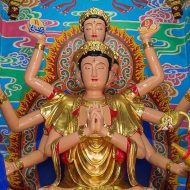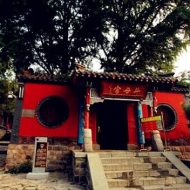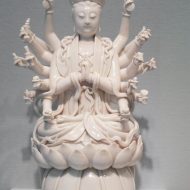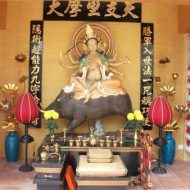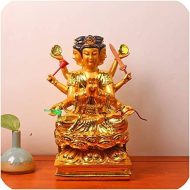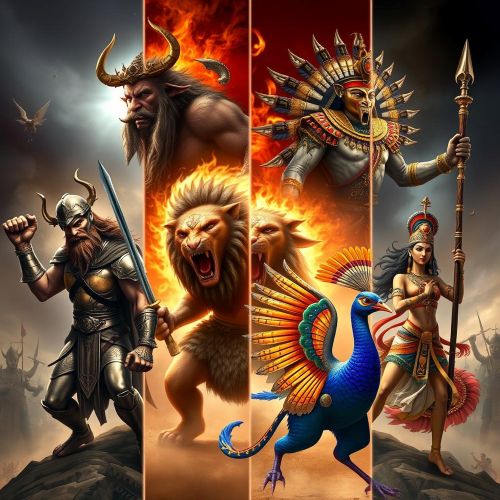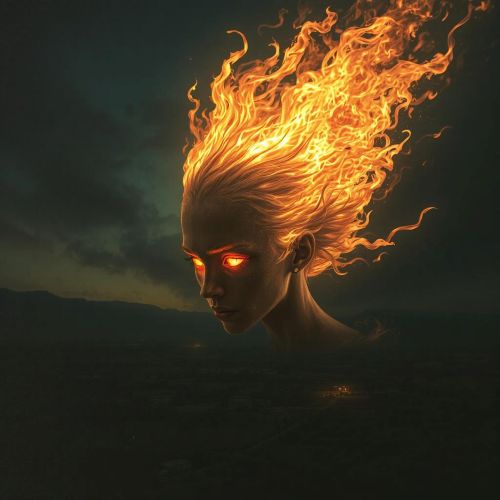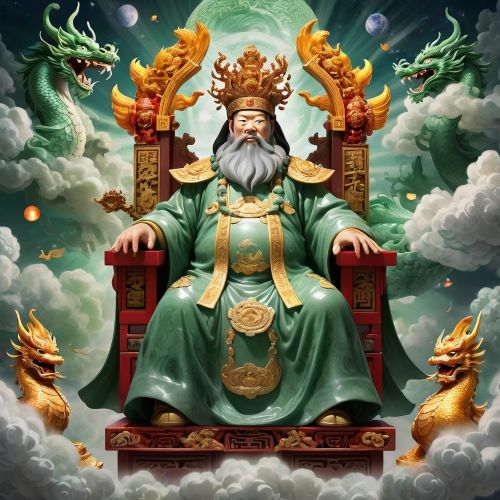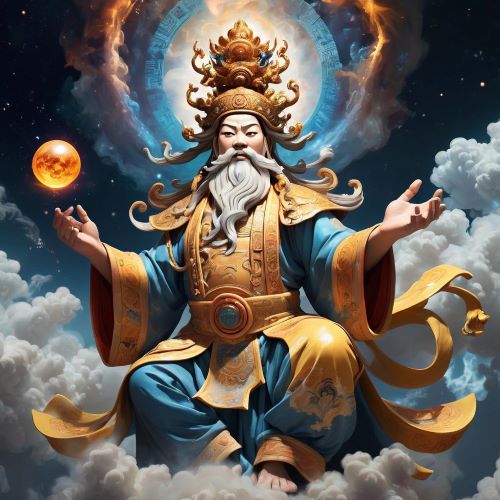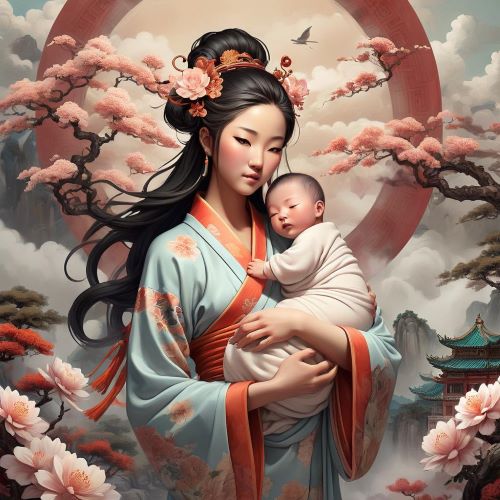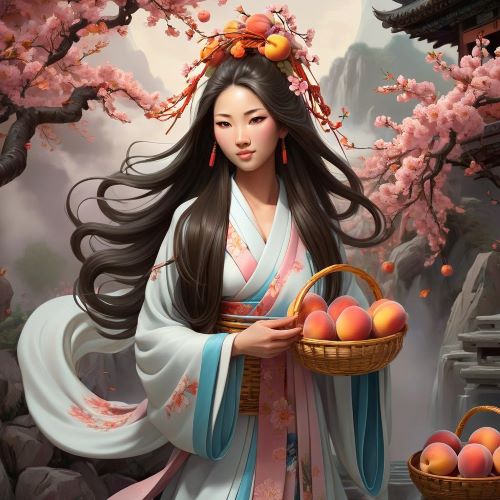Doumu : The Heavenly Queen
Listen
At a glance
| Description | |
|---|---|
| Origin | Chinese Mythology |
| Classification | Gods |
| Family Members | N/A |
| Region | Chinese |
| Associated With | Balance, Divine Energy |
Doumu
Introduction
One of the foundational deities of Chinese mythology is Doumu, who is also referred to as the mother of the Big Dipper. She is the female half of the Heavenly Energy concept and embodies both love and mercy. In some Chinese texts, she is also referred to as the goddess Xiwangmu.
There are no myths about Doumu, but she was regarded as a significant deity due to her role as a cosmic female deity. According to legend, she may have been involved in Huangdi’s mother’s virginal pregnancy.
Physical Traits
Her face is characterized by love and kindnes and she has sixteen arms. Two hands are usually held in front of her in prayer while the other 14 hold various religious items, such as the moon and sun, bow and arrow, and a vase. Her chariot is made up of seven stars and is often drawn by pigs.
Family
In the Chinese Buddhism of the Tang dynasty, Doumu was conflated with another deity known as Marici, who is regarded as the mother of the Way and the Dipper. Marici’s chariot is additionally dragged by seven pigs. Ironically, the incantation that was used for Doumu is similar to one that was used for Marici, and it is also praised in the beginning with eight verses in Chinese.
Other Names
Although her various titles are often used interchangeably, the most common one is Doumu, which literally means “Mother of the Big Dipper.” During the time of the Big Dipper’s appearance in ancient times, it was considered to be a type of chariot. She is also called Doumu Yuanjun or “Mother of the Chariot,” or Doulao Yuanjun, which literally means “Ancestress of the Chariot.” She is also referred to as Tianhou (“Queen of Heaven”) or Tianmu (“Heavenly Mother”).
Powers and Abilities
Her main role in the universe is to provide an important balance, keeping even the heavens balanced between male and female. Doumu was considered to be a celestial deity who possessed divine energies. She was not a creator god who worked with her hands, but the force of heaven acting as a source of creation.
Modern Day Influence
One of the most important principles of Taoism is the idea of balance and is symbolised by Duomu and Tian. This concept is often represented by the two elements of yin and yang, which are known to exist in all aspects of the world. They are both complementary and opposite, and they must be kept in balance in order for the universe to operate.
The lack of one or both of the necessary elements to balance and risk chaos would destroy the whole concept of balance. The elements of yin and yang are often represented as the opposites of each other, which means that they have to work together to maintain harmony.
Related Images
Frequently Asked Questions
What is Doumu known for?
Doumu, also known as Doumu Niangniang, is a significant goddess in Chinese mythology, particularly in Taoism. She is primarily known as the goddess of the Big Dipper, embodying cosmic order and balance. Revered as the mother of all stars, she influences their movements and the fates of individuals on Earth. Doumu is associated with fertility, childbirth, and spiritual enlightenment, often depicted meditating among the stars. Worshiped in various temples, she is sought for blessings related to health, prosperity, and guidance.
Who is the mother of the Dipper?
How many arms does Doumu have?
How is Doumu worshiped in modern practices?
What are the symbols associated with Doumu?
Doumu is often associated with various symbols that reflect her divine nature and cosmic powers. Common symbols include the Big Dipper, representing her role as its personification, and the Taoist yin-yang, symbolizing balance and harmony. She is also depicted with peaches, representing immortality and fertility, and lotus flowers, which signify purity and spiritual enlightenment. These symbols collectively highlight her protective, nurturing, and enlightening qualities.

